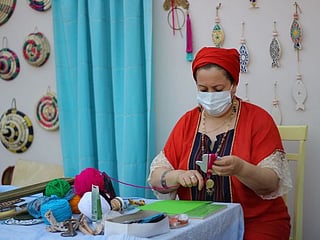Dubai releases new guide for parents of students of determination
KHDA document provides checklist on rights and steps towards inclusive education

Dubai: Parents of private school students in Dubai can now access a new guide on inclusive education released by the Knowledge and Human Development Authority (KHDA) on Tuesday.
It provides information about parents’ rights and responsibilities and empowers them to be advocates for their children. The guide includes provision for developing an Individual Education Plan for the child and establishing an Individualised Service Agreement with the school.
Fatma Belrehif, CEO of Dubai Schools Inspection Bureau at KHDA, said: “Our schools have embraced inclusive education and we have ensured that parents are fully informed and able to make the right choices. The new guide is an important step in realising Dubai’s aspirations to become one of the most inclusive cities in the world.”
Parents and schools are partners
The guide provides parent support checklists that are points of reference for parents as they work together with schools to achieve inclusive education. “Parents are the experts on their children. They hold unique knowledge and must be empowered to work in partnership with schools to develop and implement effective systems of support for their children. Enabling parents to have access to information that empowers them to choose the right school for their children and promoting access to inclusive education will bring significant benefit to all students in Dubai private schools,” added Belrehif.
The guide is the latest in a series of inclusive education publications released by KHDA as part of Dubai’s education strategy. The first publication, ‘Dubai Inclusive Education Policy Framework’, launched in 2017, was a key accelerator of the ‘My community … a city for every one’ initiative.
Six steps towards inclusive education
Step 1: Selecting an inclusive school for your child
Step 2: Your child’s participation in an Entry Assessment of Need
Step 3: Identifying barriers that restrict your child’s learning
Step 4: Implementing support to lower barriers to learning
Step 5: Developing an Individual Education Plan for your child and establishing an Individualised Service Agreement
Step 6: Communicating about and contributing to your child’s education
Sign up for the Daily Briefing
Get the latest news and updates straight to your inbox









